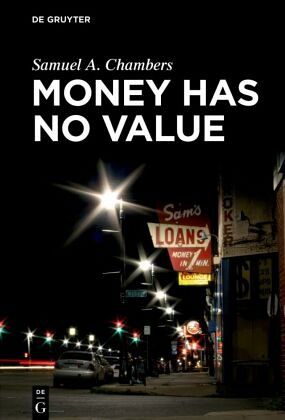Nicht lieferbar

Money Has No Value
We need a new theory of money. The still-dominant theory of money as taught in intro textbooks is 100+ years old, and for almost that long we have known that it's totally wrong. The best alternative are "heterodox" accounts developed in the 90s and 00s. These are indeed better overall descriptions of money, but they remain incomplete and inadequate: they rely too much on why the orthodoxy is wrong, thereby incorrectly assuming there is only one alternative (so-called heterodoxy). Money has no value develops a new (more subtle, more sophisticated) theory of money. It takes more seriously than a...
We need a new theory of money. The still-dominant theory of money as taught in intro textbooks is 100+ years old, and for almost that long we have known that it's totally wrong. The best alternative are "heterodox" accounts developed in the 90s and 00s. These are indeed better overall descriptions of money, but they remain incomplete and inadequate: they rely too much on why the orthodoxy is wrong, thereby incorrectly assuming there is only one alternative (so-called heterodoxy). Money has no value develops a new (more subtle, more sophisticated) theory of money. It takes more seriously than any other work to date, the depth and seriousness of the fundamental claim that all money is credit. Money is not a thing, but a marker of a social relation of credit and debt between two parties. Money is not value itself; no form of money (as money) ever possesses any positive, intrinsic value. Second, the book shows that not only is all money credit, but that in an important theoretical sense, all credit is money to the extent any credit/debt between two parties has the potential to be transferred to another party (thereby functioning as money). Finally, the book links this radical credit theory of money to today's concrete money practices: this includes global capital flows, national and international monetary policy, and most of all the daily turnover in the money markets. The book therefore develops the needed conceptual framework to ask questions like: what is going on with Bitcoin (much less GameStop) in 2021.












